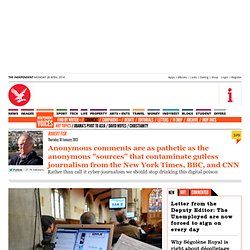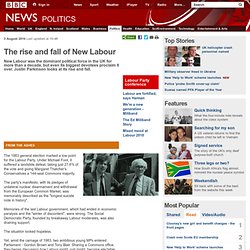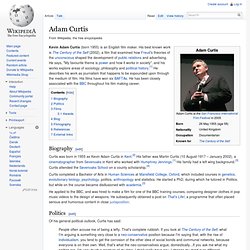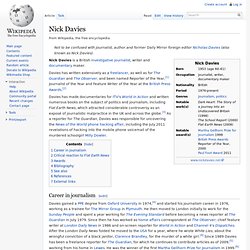

Are we letting down our Muslim sisters? Liberian activist and joint Nobel Peace Prize winner Leymah Gbowee.

There is nothing like the power, energy and warmth of a good female pow-wow. This weekend’s ‘All About Women’ festival at the Sydney Opera House was a luminous example. I felt lifted, upheld and stimulated by the intellect of the women on and off stage. Yet there were a few moments where I wondered if we western women often sound like, well how do I put this? Spoilt whingers? There we were pondering how to be brave, how to juggle and whether men could be feminists while millions of women in the world suffer gross injustice. To answer my own question, I don’t believe we are whinging. Somali refugee turned politician and polemicist Ayaan Hirsi Ali. Yet Ayaan Hirsi Ali is right when she says ‘the liberation of women is like a vast unfinished house; the west wing is fairly complete but the east wing is worse than unfinished; it’s falling into ruin’. Japanese war crimes. Chinese prisoners being buried alive. Japanese war crimes occurred in many Asian countries during the period of Japanese imperialism, primarily during the Second Sino-Japanese War and World War II.
Some of the incidents have also been described as an Asian Holocaust[1] and Japanese war atrocities.[2][3] Some war crimes were committed by military personnel from the Empire of Japan in the late 19th century, although most took place during the first part of the Shōwa Era, the name given to the reign of Emperor Hirohito, until the military defeat of the Empire of Japan, in 1945. Definitions[edit] International and Japanese law[edit] Mark Steel: pt3 Sexual Revolution. The Friday Podcast: The Cotton Wars : Planet Money. Hide caption"They keep coming to the table ... always bitching and complaining.

" —Dahlin Hancock, Texas cotton farmer, on the Brazilians. Chana Joffe-Walt/NPR We need four bales of cotton to make the Planet Money t-shirt. On today's Planet Money, we go shopping in Texas and Brazil — and find a long-running trade war. We meet a Brazilian who took on the world's largest superpower, a Texas cotton farmer who's tired of hearing the Brazilians complain, and a guy named Renato — a.k.a. Bayes' theorem. A blue neon sign, showing the simple statement of Bayes's theorem In probability theory and statistics, Bayes' theorem (alternatively Bayes' law or Bayes' rule) relates current to prior belief.

It also relates current to prior evidence. It is important in the mathematical manipulation of conditional probabilities.[1] Bayes' rule can be derived from more basic axioms of probability, specifically conditional probability. When applied, the probabilities involved in Bayes' theorem may have any of a number of probability interpretations. An Intuitive (and Short) Explanation of Bayes’ Theorem.
Bayes’ theorem was the subject of a detailed article.

The essay is good, but over 15,000 words long — here’s the condensed version for Bayesian newcomers like myself: Tests are not the event. We have a cancer test, separate from the event of actually having cancer. We have a test for spam, separate from the event of actually having a spam message.Tests are flawed. Tests detect things that don’t exist (false positive), and miss things that do exist (false negative).Tests give us test probabilities, not the real probabilities. The Suzanne Moore-Julie Burchill uproar shows how utterly bonkers parts of the radical Left are at the moment.
Photoshopper's note: Dan insisted on being 'shopped as Javert for this one.

Last night I went to see Les Misérables, and nearly disgraced myself. As the ensemble broke into their first stirring rendition of “Do You Hear The People Sing” – and all around me wept proud tears of solidarity – I almost burst out laughing. It wasn’t that I was belittling Hugh Jackman and Eddie Redmayne’s revolutionary ardour, though Russell Crowe’s Javert did strike me as just the sort of man who knows how to take tough choices in an age of austerity. Instead I was reminded of the time I was working for the GMB union, and we decided to use “The People’s Song” to open our annual congress.
Every year we’d begin with Jerusalem, and for once we thought we’d let our hair down a bit. John haldane. Anonymous trolls are as pathetic as the anonymous "sources" that contaminate the gutless journalism of the New York Times, BBC, and CNN - Comment - Voices. He tells “lie upon lie, all of them directly or indirectly aimed at the destruction of Israel”.

And he has received the following message: “The Islamist cut-throats you sympathise with would gladly slash your pencil neck from ear to ear just because you won’t bow to their bloodthirsty pedophile [sic] prophet.” And now a clue. In this same list of website filth – sent over just two days – an anonymous writer adds: “Could Robert Fisk be next?” My sin – and the above, believe me, is the clean end of the abuse – was to write an article last week about the Middle East in 2013. The rise and fall of New Labour. 3 August 2010Last updated at 10:48 New Labour was the dominant political force in the UK for more than a decade, but even its biggest devotees proclaim it over.

Justin Parkinson looks at its rise and fall. The 1983 general election marked a low point for the Labour Party. Under Michael Foot, it suffered a landslide defeat, taking just 27.6% of the vote and giving Margaret Thatcher's Conservatives a 144-seat Commons majority. Peter Oborne. Peter Oborne (born 11 July 1957) is a British journalist.

He is chief political commentator of the Daily Telegraph and associate editor of the Spectator. He is author of The Rise of Political Lying and The Triumph of the Political Class, and, with Frances Weaver, the pamphlet Guilty Men. Oborne is known for his acerbic commentary on the hypocrisy and apparent mendacity of contemporary politicians.[1][2][3] Career[edit] Oborne was educated at Sherborne School and read history at Christ's College, Cambridge, graduating with a BA[4] degree in 1978.
Adam Curtis. Biography[edit] Curtis was born in 1955 as Kevin Adam Curtis in Kent.[2] His father was Martin Curtis (10 August 1917 – January 2002), a cinematographer from Sevenoaks in Kent who worked with Humphrey Jennings.[1] His family had a left wing background.[3] Curtis attended the Sevenoaks School on a county scholarship.[4] Curtis completed a Bachelor of Arts in Human Sciences at Mansfield College, Oxford, which included courses in genetics, evolutionary biology, psychology, politics, anthropology and statistics.

He started a PhD, during which he tutored in Politics, but while on the course became disillusioned with academia.[3] Nick Davies. Nick Davies is a British investigative journalist, writer and documentary maker.

Davies has written extensively as a freelancer, as well as for The Guardian and The Observer, and been named Reporter of the Year,[1] Journalist of the Year and Feature Writer of the Year at the British Press Awards.[2] Career in journalism[edit] [edit] Flat Earth News was greeted in the London Review of Books on its publication as "a genuinely important book, one which is likely to change, permanently, the way anyone who reads it looks at the British newspaper industry".[11] The LRB highlighted the analysis showing that 60% of the content of UK papers was based mainly on wire copy or press releases, while only 12% are original stories and only 12% of stories showed evidence that the central statement had been corroborated (see Churnalism). Risk: The Science and Politics of Fear: Amazon.co.uk: Dan Gardner. Nick Bostrom. Nick Bostrom (born Niklas Boström, 10 March 1973)[1] is a Swedish philosopher at St. Cross College, University of Oxford known for his work on existential risk, the anthropic principle, human enhancement ethics, superintelligence risks, the reversal test, and consequentialism.
He holds a PhD from the London School of Economics (2000). He is the founding director of both The Future of Humanity Institute[2] and the Oxford Martin Programme on the Impacts of Future Technology as part of the Oxford Martin School at Oxford University.[3] Early life and education[edit] Bostrom was born in 1973 in Helsingborg, Sweden.[5] He pursued postgraduate studies in theoretical physics and philosophy at Stockholm University, and computational neuroscience at King’s College in London.
Philosophy[edit] Existential risk[edit] Anthropic reasoning[edit] Bostrom has published numerous articles on anthropic reasoning, as well as the book Anthropic Bias: Observation Selection Effects in Science and Philosophy. 7 worst international aid ideas. Nudity, Niqab and the illusion of ‘free choice’ A young woman blogger in Egypt (shown above) posted a photograph of herself, naked, as a symbol of resistance against the patriarchal conservative forces that are threatening to overwhelm Egypt. Today, I read what are possibly the most beautiful opening words of any essay or opinion piece ever.
It went like this: “When a woman is the sum total of her headscarf and hymen – that is, what’s on her head and what is between her legs – then nakedness and sex become weapons of political resistance.” This comes from a powerful essay by Mona Eltahawy in the Guardian, called “Egypt’s Naked Blogger is a Bomb Aimed at the Patriarchs in Our Mind” (Eltahawy was recently sexually assaulted and beaten by police in Cairo’s Tahrir Square, her left hand and right arm broken by the force of their blows). The response has been incendiary; read it for yourself. Is the real war against terrorism, or against patriarchy?
Israel's Story in Maps. The Great FireWall - Reports. "Mao Zedong said that to have power you need two things: the gun and the pen ... The Communist Party has the gun, but the Internet is now the pen. If they lose control of it, something will happen to challenge their authority. " --Guo Liang, Chinese Academy of Social Sciences, Beijing, in an interview with CPJ. On June 3, 2000, police in Chengdu arrested the founder of China's first human-rights Web site, www.6-4tianwang.com. Watch Lunch Hour Lectures online. Conscious Economics - Economic democracy by mature and enlightened people. Paul Feyerabend - Bibliography. The Philosopher's Beard. Thou shalt not commit logical fallacies.
Yeah, Sure, China Is An Economic Superpower. On Paper That Is. Anton Goryunov writes from Beijing: For those of you easily excitable people, who love to talk about the great Chinese economic miracle, quoting official statistics coming in abundance from Beijing and using them to prove your silly point: most of these stats are incorrect or simply false. I bet all of the academics and economists out there, who have made a comfortable living out of writing about China’s economic boom, would be pissed off by what I’m saying here. They don’t like it when someone tells it like it is about communist China.
It sort of casts a shadow on their research and numerous books that they have written. For several decades now China has been feeding the world with optimistic economic data. Federal Judge Finds Warrantless Cell Phone Tracking Unconstitutional. Personal Finance News & Advice. Austrian School of Economics: The Concise Encyclopedia of Economics. Institute for the Study of War. Home. Young Feminists Blogging, Organizing, Kicking Ass. Global Policy Forum. Council on Foreign Relations.
Bad Science. Science news and science jobs from New Scientist - New Scientist. Foreign Affairs. PinkNews.co.uk - Gay news, reviews and comment from Europe's largest lesbian, gay, bisexual and trans news service. Contemporary UK Feminism - The F-Word. New Statesman - Britain's Current Affairs & Politics Magazine. Philosophy Bro. Magazine - Politics, Business, Technology, and the Arts - Slate Magazine.
The New York Times - Breaking News, World News & Multimedia. The Christian Science Monitor - CSMonitor.com.